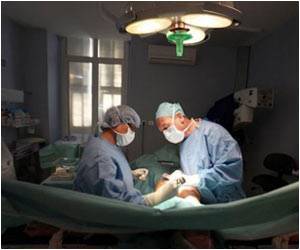The U.S. Food and Drug Administration (FDA) should require clinical data to be submitted as part of a more rigorous re-evaluation of medical devices that are modified after approval for patient safety.

"The need for rapid approval of design improvements to marketed devices must be weighed against the possibility of introducing unknown risks to patient health from such modifications," the authors wrote in their commentary.
In addition, Redberg said, "A requirement that post-marketing clinical data, including adverse events, be collected and deposited into a public data base would allow for the best identification of patients who could benefit from a device, without slowing market entry."
The growing medical device industry is expected to generate $228 billion in sales by 2015 for technologies ranging from orthopedic knee replacements to cochlear implants, to infusion pumps. Many devices are invasively installed within the body, and the potential complications when they fail can be great.
Examples of avoidable outcomes, according to Redberg and Zheng, include hundreds of failures and five deaths arising from use of the modified Sprint Fidelis defibrillator electrical lead wire made by Medtronic, Inc., prompting a recall, and a similar recall of defibrillator leads marketed by St. Jude Medical, Inc., after 227,000 had been implanted in patients.
The FDA evaluates safety and effectiveness of new, high-risk medical devices before they are marketed, through a process known as premarket approval (PMA). This procedure involves the submission and review of clinical-trials data. However, modifications of existing devices may be approved without additional clinical data, through a less rigorous procedure called a PMA supplement.
Advertisement
The Medtronic and St. Jude Medical devices were modified multiple times through PMA supplements without additional clinical data submission, the authors noted.
Advertisement
The authors advocated for clear labeling of devices to highlight modifications to physicians and alert them to unevaluated risks.
Source-Eurekalert









